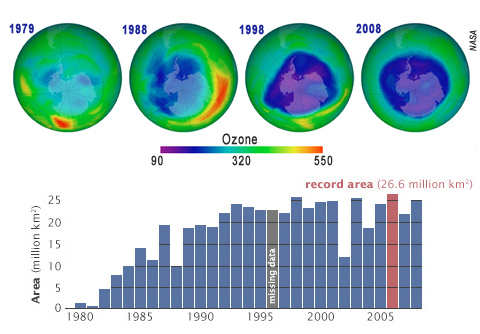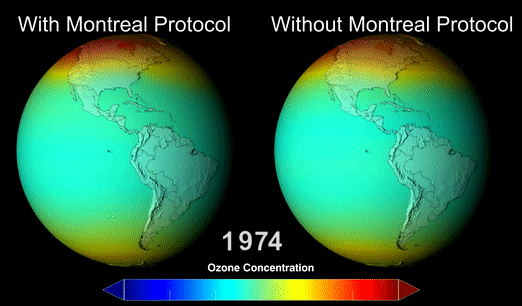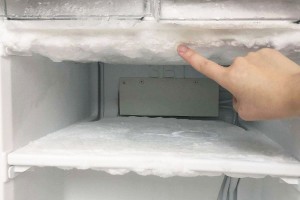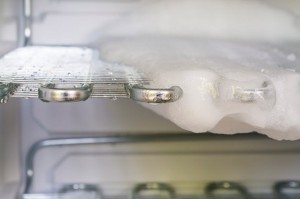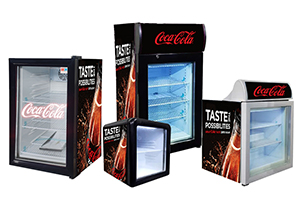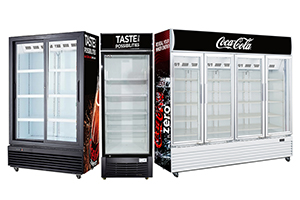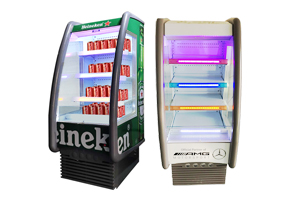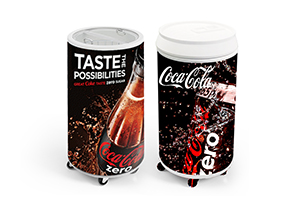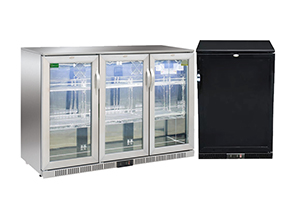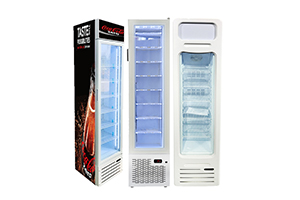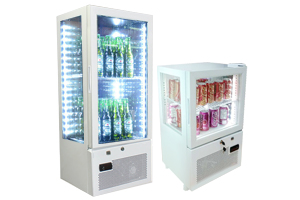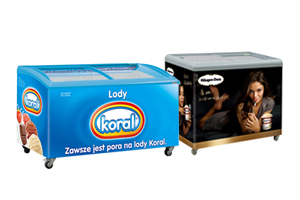From the Discovery of Ozone Hole to Montreal Protocol
The discovery of Antarctic Ozone Hole
Ozone layer protects humans and the environment from harmful levels of ultraviolet radiation from the sun. Chemicals referred to as ozone depleting substances (ODS) released to the atmosphere uncontrolledly before; Those chemicals damage the stratospheric ozone layer. In May 1985, reporting in the journal Nature British Antarctic Survey (BAS) scientists Joe Farman, Brian Gardiner and Jonathan Shanklin described their observation of large losses of ozone over Antarctica. The discovery of the Antarctic ozone hole by BAS provided an early warning of the potentially dangerous thinning of the ozone layer worldwide.
Vienna Convention, an Usher to Montreal Protocol
As technology advanced, scientific studies pointed out the emerging problem and its impacts of ozone depletion. Actions are being called years long. In 1985, the Vienna Convention for the Protection of the Ozone Layer was created in response. The Vienna Convention was the first convention of any kind to be signed by every country involved, taking effect in 1988 and reaching universal ratification in 2009.
The Convention aimed to promote cooperation among nations by exchanging information on the effects of human activities on the ozone layer. But because the convention is not legally binding, Vienna convention does not require countries to take control actions to protect the ozone layer. Montreal protocol stepped in 1987 to address this issue.
What is Montreal Protocol?
The Montreal Protocol was signed in 1987 and entered into force in 1989. It was Initially signed by 46 countries, the treaty now has nearly 200 signatories. The Montreal Protocol on Substances that Deplete the Ozone Layer is a global agreement to protect the Earth’s ozone layer by phasing out the chemicals that deplete it. Montreal Protocol is a universal treaty that regulates the production and consumption of nearly 100 man-made chemicals referred to as ozone depleting substances (ODS).
What does Montreal Protocol say?
The Montreal Protocol phases down the consumption and production of the different ODS in a step-wise manner, with different timetables for developed and developing countries (referred to as “Article 5 countries”). Under this treaty, all parties have specific responsibilities related to the phase out of the different groups of ODS, control of ODS trade, annual reporting of data, national licensing systems to control ODS imports and exports, and other matters. Developing and developed countries have equal but differentiated responsibilities, but most importantly, both groups of countries have binding, time-targeted and measurable commitments.
Substances controlled under Montreal Protocol
Annexes A (CFCs, halons)
Annexes B (other fully halogenated CFCs, carbon tetrachloride, methyl chloroform)
Annexes C (HCFCs)
Annexes E (methyl bromide)
Annexes F (HFCs)
Montreal Protocol is Supported by Ozone Secretariat of UN Environment Programme
The treaty evolves over time in light of new scientific, technical and economic developments, and it continues to be amended and adjusted. The Meeting of the Parties is the governance body for the treaty, with technical support provided by an Open-ended Working Group, both of which meet on an annual basis. The Parties are assisted by the Ozone Secretariat, which is based at UN Environment Programme headquarters in Nairobi, Kenya.
Read Other Posts
What Is Defrost System In Commercial Refrigerator?
Many people have ever heard of the term “defrost” when using the commercial refrigerator. If you’ve had used your fridge or freezer for a while, over time...
Proper Food Storage Is Important To Prevent Cross Contamination...
Improper food storage in the refrigerator can lead to cross-contamination, which would ultimately cause serious health problems such as food poisoning and food ...
How To Prevent Your Commercial Refrigerators From Excessive...
Commercial refrigerators are the essential appliances and tools of many retail stores and restaurants, for a variety of different stored products that are usually merchandised...
Our Products
Post time: Feb-09-2023 Views:

